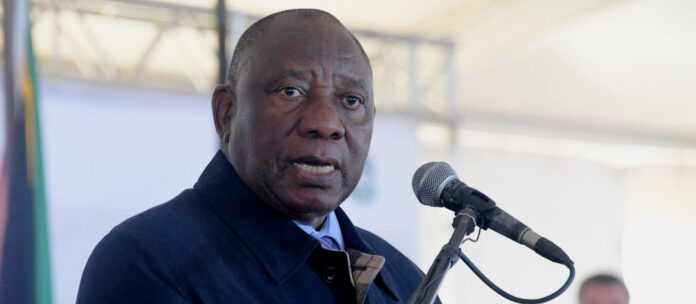President Cyril Ramaphosa’s address to the nation last Sunday, born from the explosive revelations of Lt-Gen Nhlanhla Mkhwanazi, was a high-stakes gamble.
While the establishment of a judicial commission of inquiry into alleged criminal syndicates within our law enforcement and intelligence structures appears to be a commitment to accountability, its true impact will hinge not on its findings, but on the actions that must inevitably follow.
This isn’t merely about another investigation; it’s about whether South Africa can finally cut out the cancer that threatens its very soul.
The public’s frustration is a storm brewing, evident across social media. The cynical refrain, “This was not enough,” that generally followed the president’s announcement echoes the deep-seated weariness with a system that seems perpetually caught in a loop of inquiry without consequence.
Memories of the staggering cost of the Zondo commission, with seemingly little to show in terms of high-profile arrests, continue to fuel scepticism.
“We are still seeing famous names from the Zondo commission gallivanting in places of influence and prominence,” laments one observer, highlighting the bitter taste of perceived impunity.
The fervent calls to “bring back the Scorpions” aren’t just nostalgia; they’re a desperate plea for a law enforcement body with the unyielding teeth to truly bite back against organised crime, unlike the perceived bureaucratic paralysis of endless commissions.
The public’s trust in the police, already alarmingly low due to rampant corruption and brutality, demands more than just another fact-finding exercise.
Ramaphosa’s decision to place Minister of Police Senzo Mchunu on “leave of absence” instead of a definitive dismissal, while perhaps legally expedient, feels like a political half-measure to a public demanding immediate and decisive action. The common refrain on X was that Mchunu should have been fired.
While the appointment of Prof Firoz Cachalia as interim minister brings a credible legal voice to the fore, questions persist about the practicalities and perception of such an arrangement. “The state is now paying for two ministers of police,” points out a concerned citizen, a valid query given the nation’s economic challenges.
And if a deputy minister of police cannot step into the breach, what precisely is their function?
Yes, the president’s emphasis on a judicial commission and strict time frames adheres to democratic principles. Some acknowledge this as proper, but for a nation gripped by rampant criminality – from political killings to the insidious grip of drug cartels – the moment demands more than procedural correctness. It demands a seismic shift.
The question that hangs heavy in the air, articulated by probing voices on social media, is: “What exactly is the president afraid of?” Is it the true cost of confronting deeply embedded power structures, even within his own cabinet?
The failure to axe tainted ministers undermines any stated commitment to cleaning house. This commission must not become another political can kicked down the road. Its interim reports in three and six months must be more than just updates; they must be actionable blueprints for immediate arrests, swift disciplinary actions, and radical institutional
overhauls.
This is a moment of reckoning. The president has taken a step, but the nation holds its breath, waiting to see if he has the courage to take the leap that this profound crisis demands.
Failure to deliver concrete consequences will not only further erode public trust but might well prove to be the most catastrophic misstep of this administration
• Pikolomzi Qaba is a PhD scholar and works in communications in a government entity



